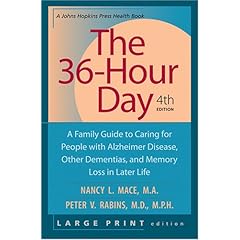CoMentis, a California/Oklahoma City-based pharmaceutical company, is developing a beta-secretase inhibitor, CTS-21166, discovered by Dr. Tang and Dr. Arun Ghosh of Purdue University. Unlike the existing Alzheimer’s drugs that treat only the symptoms, CTS-21166 inhibits, or turns off, the mechanism believed to lead to disease progression. The Phase I clinical trial results showed CTS-21166 to be safe and well tolerated in humans at various dose levels. Following the administration of a single dose, “CTS-21166 represents an entirely new approach to the treatment of Alzheimer’s disease by inhibiting beta-secretase, an enzyme critical in the production of potentially toxic amyloid beta,” said Henry Hsu, M.D., CoMentis Chief Medical Officer. “It has the potential to become the first-in-class disease-modifying therapeutic agent.” |
Scientists have moved one step closer to developing a new type of drug to treat Alzheimer’s disease. An experimental drug based on discoveries made by Dr. Jordan Tang at the Oklahoma Medical Research Foundation has successfully completed the first phase of testing in human subjects.
CoMentis, a California/Oklahoma City-based pharmaceutical company, is developing a beta-secretase inhibitor, CTS-21166, discovered by Dr. Tang and Dr. Arun Ghosh of Purdue University. Unlike the existing Alzheimer’s drugs that treat only the symptoms, CTS-21166 inhibits, or turns off, the mechanism believed to lead to disease progression. The Phase I clinical trial results showed CTS-21166 to be safe and well tolerated in humans at various dose levels. Following the administration of a single dose, CTS-21166 reduced the levels of plasma beta amyloid, a potential cause of progression of the disease, by as much as 60 percent.
“CTS-21166 represents an entirely new approach to the treatment of Alzheimer’s disease by inhibiting beta-secretase, an enzyme critical in the production of potentially toxic amyloid beta,” said Henry Hsu, M.D., CoMentis Chief Medical Officer. “It has the potential to become the first-in-class disease-modifying therapeutic agent.”
Beta secretase, the enzyme thought responsible for causing Alzheimer’s, was first identified in 2000 by Tang and his colleagues at OMRF. They then developed an inhibitor to stop the enzyme’s action in a laboratory setting. Since that time, Tang and collaborator Arun Ghosh, Ph.D., of Purdue University have worked with CoMentis scientists to design and develop new inhibitors safe for use in humans.
“This is a significant milestone and an unquestionable success,” Tang said. “We are stepping onto uncharted paths in Alzheimer’s treatment and seeing wonderful results so far. Hopefully, this drug will make a real difference and help stop this disease one day.”
While the clinical trials continue, Tang and his colleagues will work on the next generation of drugs to combat Alzheimer’s. “This is not a one-shot deal. We will keep working to build an arsenal to fight this deadly disease.”
During the first phase of testing, the drug was administered by injections, Tang said. Another clinical study, using an oral version of CTS-21166 will likely begin in a few months, followed by a phase II study later this year, he said.
“As far as Phase I testing goes, we could not have expected better results for a new CNS (central nervous system) drug,” he said. “It not only proved the drug candidate is safe, it gave us a whole lot of information on efficacy.”
Tang said the significance of this drug is that it is designed to treat the disease itself rather than treating the symptoms, like all other available Alzheimer’s drugs.
“It would be great if people could take one pill a day and push the onset of the disease back indefinitely,” he said. “This is another milestone toward that goal.”
About Alzheimer’s Disease:
Alzheimer’s disease is a neurological disorder characterized by slow, progressive memory loss due to the gradual death of brain cells. According to the Alzheimer’s Association, the disease affects more than 4.5 million Americans, including 62,000 Oklahomans and nearly half the U.S. population over the age of 85.
About CoMentis:
CoMentis, Inc. (comentis.com) has its headquarters in South San Francisco, with research operations in both South San Francisco and Oklahoma City. The company is engaged in the discovery and development of small-molecule drugs to treat Alzheimer’s disease, age-related macular degeneration (AMD) and cognitive disorders.
About OMRF:
OMRF (omrf.org) is an independent, nonprofit biomedical research institute dedicated to understanding and developing more effective treatments for human disease. Its scientists focus on such critical research areas as Alzheimer’s disease, cancer, lupus and cardiovascular disease.

No comments:
Post a Comment